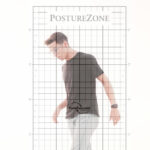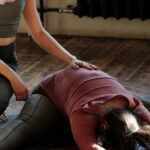Everything You Need to Know about Vestibular Therapy

Vestibular therapy (VT) or vestibular rehabilitation therapy (VRT) is used to treat balance problems and other related symptoms. You might think that this appears only in the case of old people, but that is not necessarily true. There are a lot of cases in which people might need to resort to VRT.
Imbalance is just one of the symptoms that can be treated with vestibular therapy (and this because it’s related to inner ear problems). The list goes on with anything related to dizziness, vertigo, and even vision problems.
What is vestibular therapy?
VT is the program created to handle all the above-mentioned problems – vertigo, dizziness and the like. It is an exercise-based program, where patients are given practical exercises so their condition improves. If you are interested in finding out as much as possible about what vestibular therapy is and what can you do to improve symptoms, you should give this article a read: https://www.ncbi.nlm.nih.gov/pmc/articles/PMC3259492/.
Some symptoms you should take into consideration
Symptoms like dizziness can appear anytime and their duration can fluctuate, too. They can appear while standing, lying in bed or switching from one position to another. Their duration can also be different from one person to another. For some patients, they last only for some seconds, for others, they can last for hours.
Let’s talk about some other symptoms that can be treated by vestibular rehabilitation therapy. We already talked about dizziness because that is the most common one and it brings imbalance and even falls. But there also other symptoms you should consider. Do you have constant headaches, blurry vision or neck stiffness? These could be a sign that you need to talk to a specialist and VRT might be the solution you need to get better.

The importance of vestibular rehabilitation exercises
So, if you have some of the symptoms we talked about and you get to a specialist, he will first and foremost evaluate them. This is a complex evaluation, that includes ear testing, balance, neck strength, visual stability, and many others.
According to his decision, the specialist will recommend you some special exercises. Now, there are some things you should know about these exercises. You do not do them once or twice. Usually, they must become part of your routine, because VRT is a lengthy treatment.
Although it might seem dull at the beginning, you must know that vestibular rehabilitation exercises will help you get better. If you want, you can think about them the same way you think about going to the gym or having a daily ritual like meditating or journaling. Consider these exercises part of your daily ritual, decide to do them in the evening or the morning so you do not forget about them. You can consider even putting up a timer or choosing a playlist to help you go on with them.
How do we measure a patient’s response to VRT?
Measuring a patient’s response to VRT is quite difficult. This happens because of a multitude of factors.
- Some disorders might get better in time on their own (yes, lucky patients), so this would make it difficult for specialists to assess if the exercises were the decisive factors or the passage of time.
- A specialist cannot measure balance. Anyway, there are other things associated with balance that specialist can measure.
- Balance is something you have to deal with every day, every moment. So, if you know you have a problem with this, you should protect yourself and try not to walk long distances or travel that much. Nonetheless, if people feel a little bit better, they start going places again, and this might lead to constant falling.
How long does VRT last?
The duration of the therapy varies according to symptoms. A session should last for about 45 minutes and occur approximately 3 times a week. Only your specialist will be able to tell you, as the therapy progresses, for how long you will have to keep going to therapy. You should visit this site if you want to find out more information about VRT.
Vestibular Therapy is needed in cases of dizziness and other symptoms. Just talk to a specialist and he will let you know what exercises you need to make if you have any symptoms.




















